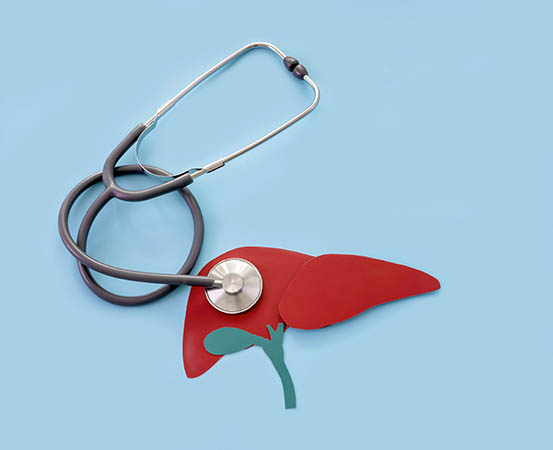
Cancer is always best treated at its first stage, says Dr Sunu Lazar Cyriac, associate professor, medical oncology, Amala Institute of Medical Sciences, Kerala. However, cancers like liver cancer or hepatocellular carcinoma are rarely diagnosed in the initial stage, making it even more difficult to treat.
The most important cause of liver cancer is the Hepatitis B virus in India and non-alcoholic fatty liver disease (NAFLD) due to obesity in the West, says Dr Shaunak Valame, consultant medical oncologist at Jawaharlal Nehru Cancer Hospital and Research Centre, Bhopal.
Causes of liver cancer
Dr Valame adds that the liver needs to sustain a substantial extent of injury for a period of time before it turns into cancer. The injury can be caused by hepatitis B or C, alcohol consumption (resulting in alcoholic fatty liver disease) or NAFLD, leading to lower albumin (a protein produced by liver that helps prevent fluid leaking to other tissues).
READ MORE :
Douse heat headaches coolly this summer
Childproofing your home: All you need to know
Is it heartburn or a heart attack?
Potassium deficiency: When your body is low on potassium
He explains, “Due to liver damage, fluid gets accumulated in the stomach (ascites), causing its expansion. Abdominal distension puts a lot of pressure on the portal vein (called portal hypertension), and this in turn causes dilation of abdominal veins. Once they dilate, they are prone to rupture, leading to symptoms like blood in stool or vomit. Besides that, there may be high levels of estrogen. For men especially, it can lead to excessive hair growth in the body, beard and even the private parts.”
However, Dr Cyriac says that in most cases, liver cancer is caused when it spreads from another organ. The severity is also high in such cases. “If the cancer spreads into the blood, the first organ that it usually affects is the liver. Common forms of cancer that spread to the liver include lung cancer, breast cancer, colon cancer, stomach cancer, pancreatic cancer and skin cancer, like melanoma,” he says.
Symptoms of liver cancer
The common symptoms of liver cancer include:
- Right abdominal pain
- Weight loss
- Loss of appetite
- Fatigue
- Blood in the vomit
- Dark stools due to presence of blood
- Dilated veins visible on the abdominal skin
- Jaundice during advanced stage
Recurrence rate of liver cancer
In most cases, liver cancer never goes away completely. While medical treatment can bring the tumor under control, Dr Valame says it could develop a resistance towards the treatment later. “So, it starts growing again. We term it as progressive disease or a relapse,” he says.
The chances and time of recurrence depend on the stage of the condition and the kind of treatment one has received. Dr Cyriac says, “If it’s in the early stage, there is high chance that the cancer can be completely cured. Even a stage one cancer can recur, but the chances are very less compared to stage four cancer. If it recurs, it usually does so within one or two years.” When it comes to cancer, it is very complicated and there is never a black-and-white answer, he adds.
Liver cancer is usually a condition of the elderly. “But there is a subset of liver cancer called hepatoblastoma, which is more commonly seen in pediatric age groups,” he says.
Treatment
Dr Valame says the challenge is that very few people present with early stage of cancer and hence, the types of interventions that can be provided are limited.
Since liver cancer is mostly caused due to cirrhosis (damaged liver), liver reserves are usually very low. As a result, the probability of a successful treatment is low. Dr Cyriac says, “If one has jaundice too, it will affect the efficacy of the treatment and its outcomes, as their immunity is compromised. We won’t be able to administer the right dosage of medicines due to liver damage as most of these medicines need a strong liver to process them.”
If cancer is in the early stage, people are usually recommended surgery or ablation. “Ablation using thermal or microwave therapy as well as chemotherapy is usually done if there are few lesions,” says Dr Valame, adding that liver transplant is also a very successful modality for early-stage cancer. But if the tumor has already spread beyond the liver, organ transplantation is not considered as there is no survival benefit.
Preventive measures for liver cancer
The following measures can be taken to prevent cancer of the liver:
- Managing obesity.
- Cutting down on fast food.
- Exercising daily.
- Avoiding alcohol consumption.
- Avoiding sharing needles.
- Having protected intercourse to avoid hepatitis infection.
- Getting vaccinated for hepatitis B.
- Ensuring proper treatment and follow-up for liver complications.
Takeaways
- Liver cancer is usually caused by chronic liver damage due to Hepatitis B or C, alcoholic fatty liver disease and NAFLD.
- In most cases, liver cancer is caused when it spreads from another organ.
- Symptoms of liver cancer include blood in the stool or vomit, weight loss and jaundice during advanced stage.
- Taking appropriate precautionary measures like avoiding alcohol consumption and managing obesity can help prevent liver damage and cancer.


















One Response
Very informative